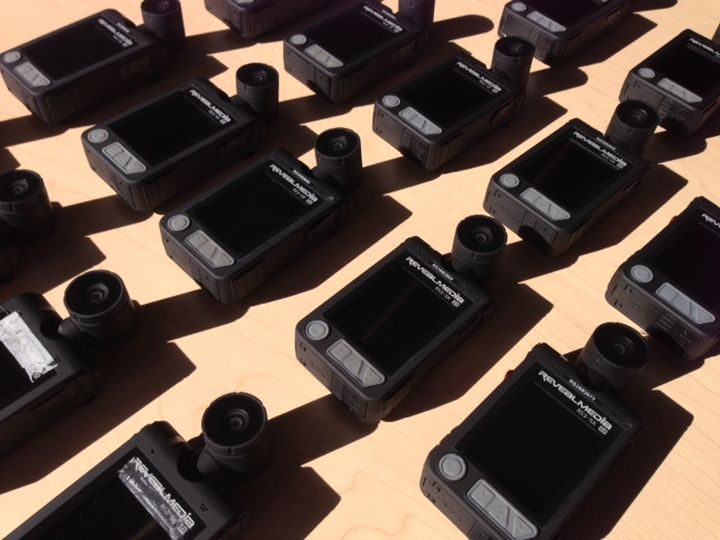The call for greater police accountability is gaining traction, with public rallies happening around the world.

The idea of body-worn cameras is just one of many steps Saskatchewan police are considering.
Moose Jaw Police Service Chief Rick Bourassa said he feels the implementation of cameras on police members would be a good public policy.
“It’s not about the cameras,” he explained. “It’s about openness, transparency and accountability of policing, which we absolutely want to contribute to all that we can.”

The commanding officer of Saskatchewan RCMP, Mark Fisher, agrees. He feels recent events have the ability to impact public trust in policing, and there must be consideration given to strategies that will regain that confidence.
“We can’t just worry about what happens in our backyard because what happens globally affects us here, and we’re seeing that first hand in this instance,” said Fisher.
The goal of body-worn cameras would be to provide a more accurate depiction of police actions on-the-job.

Get daily National news
They would also allow the reflection on any attempts made by officers to de-escalate a situation.
“Of course, it’s not ever perfect,” said Bourassa. “Sometimes what is framed in the shot doesn’t capture the whole picture and those sorts of things, but I think it gives people a level of comfort that there is more than what somebody says happened.”
The potential roll-out of body-worn cameras also raises some concerns, both for individuals and policing organizations.

Michelle Stewart is a professor at the University of Regina, as well as a community advocate. She doesn’t feel putting a camera on an officer will satisfy some of the concerns citizens have regarding police conduct.
“I think sometimes, there’s an investment in body cameras because people are finding out about acts of police brutality because they have been filmed on social media,” said Stewart. “We have to ask what it means when the police officers are the ones holding the camera.”
Stewart also highlighted a number of privacy concerns for individuals living in communities policed by officers with body-worn cameras.
“Where does the video go, and how is the video stored?” Stewart questioned.
“If I’m involved in a traffic stop, do I consent to being filmed automatically? Who is looking at that footage, and do I have access to it?”
Additionally, the cost of implementing body-worn cameras would be significant, according to police organizations.
“There’s the cost associated with actually purchasing the product the body camera itself, and the technology that comes with that,” Fisher said.
After the purchase of the cameras, there would also be costs surrounding the storage, maintenance, and human resources side of handling the footage.
While Stewart wants police to be held accountable for their actions, she says her priority is less on the use of body cameras and more on the reallocation of this kind of spending.
“These are social issues that require a social response.”
Although there is no definitive timeline as to when the province could start seeing body-worn cameras on police, Saskatoon Police Service has taken the first step by including a project in its capital budget planning process. The project is expected to proceed this year and into next.
The Government of Saskatchewan says it is open to further discussing police using body cameras, but added it’s up to individual forces to address how it would work.
Despite questions and concerns, Fisher added this is a time for the community — as well as police organizations — to be listening.
“It’s a time for change, I think we’re all hearing that loud and clear. Before we jump to what that change looks like we need to listen for a minute.”








Comments